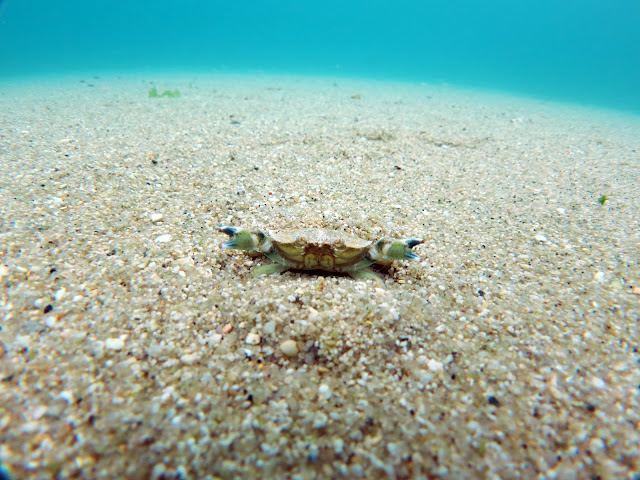Just got back from a week long expedition to the Scilly Isles, this was my first time down there and the trip had a clear aim in mind: Film Blue sharks at close quarters underwater. I've freedived and surfed most of my life and been in and out of the sea since I was a year old, but the closed I've ever come to Britain's sharks are a sighting of a lone basking shark from a cliff top and a couple of cat sharks seen whilst diving. The only knowledge of sharks I have comes from the media and a few recent documentaries as conservations have turned there attention to the worldwide massacre of these top predators for the shark fin trade. Jaws has had the biggest impact: I remember falling out of a dingy in Plymouth sound when I was 12, The few minutes I floated about, waiting to be picked up where some of the most terrifying of my life, expecting at any minute to be swallowed from beneath.
So this year I set myself the challenge of confronting that fear head on, by free diving with large sharks of cornwall and making a documentary along the way. Most peoples reaction is "We get sharks of cornwall?!" well yes, we do: Porbeagle (3 metres- record animal caught of cornwall), Mako (4 metres), Blue shark (3.8 metres) and Thresher (9.7 metres-record shark caught of cornwall) are all found in UK waters, Makos and Porbeagle are both close relatives to great whites. However there has never been a proper attack (I don't count fishermen getting bitten as they remove sharks from nets) and certainly no fatalities. In fact we should probably be more worried about are sharks than ourselves, approximately 70 million sharks where killed last year for there fins, often the rest of the shark (still alive) is thrown back overboard: some may survive for 4 weeks or more before they starve to death. But the words "shark fin soup" immediately make us think China, foreign, not our problem. Well, no. A third of all shark fins in the hong kong fish market come from Europe and Britain is currently the third largest supplier within the EU and among the top 20 suppliers worldwide.
But why should we save sharks? To a biologists this a stupid question. Sharks are the oceans top predators and have been for approximately 400 million years. The ocean ecosystems have evolved around sharks and removing them could have long reaching and
disastrous consequences, toppling food chains - food chains that we are currently at the top of: one fifth of humans rely on fish as their primary source of protein. Add to that the fact that without oxygen from marine phytoplankton we wouldn't even be able to breathe then I think we can agree that we should try not to alter anything to significant in the marine ecosystem.
The disappointing end to this post is that the documentary never got made, After 5 days on the boat, heavy fog, no mackerel for bait and near wrecking on hidden rocks forced me to accept defeat. This year.
The scillies weren't a complete loss, In the last day down there I managed a fantastic hour in the water with a friendly group of grey seals. Other sightings included 2 ocean sunfish- the worlds largest and probably most bizarre bony fish (definitely worth a look on google images), 2 harbour porpoise and a lone grey triggerfish, a tropical species that has recently been regularly sighted in the south west, perhaps due to global warming.
Seven armed starfish in sea grass bed.
Scilly is famous for it's clear blue water and white sand.








No comments:
Post a Comment